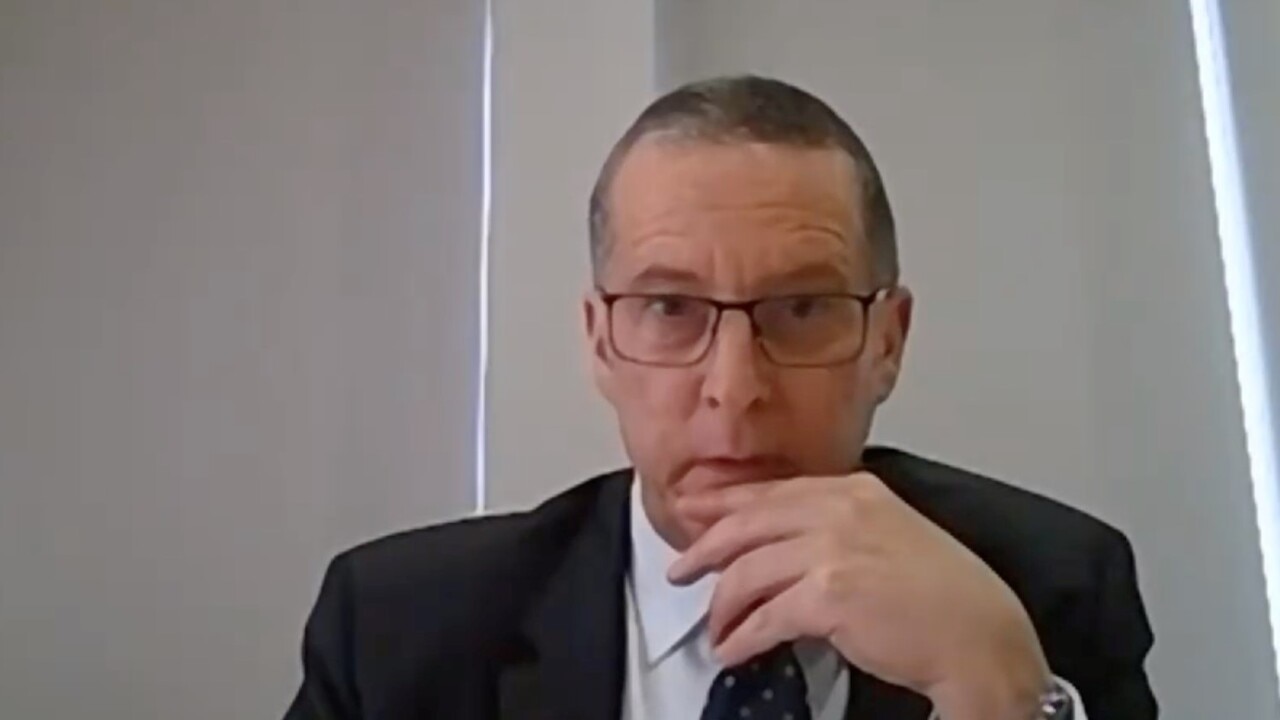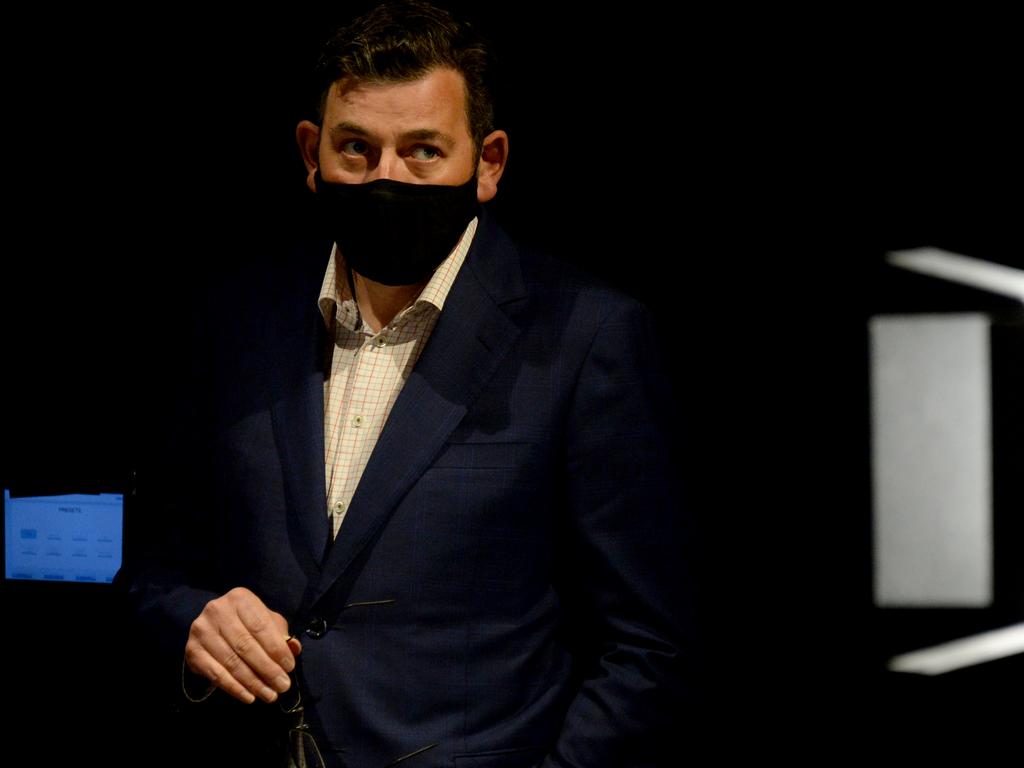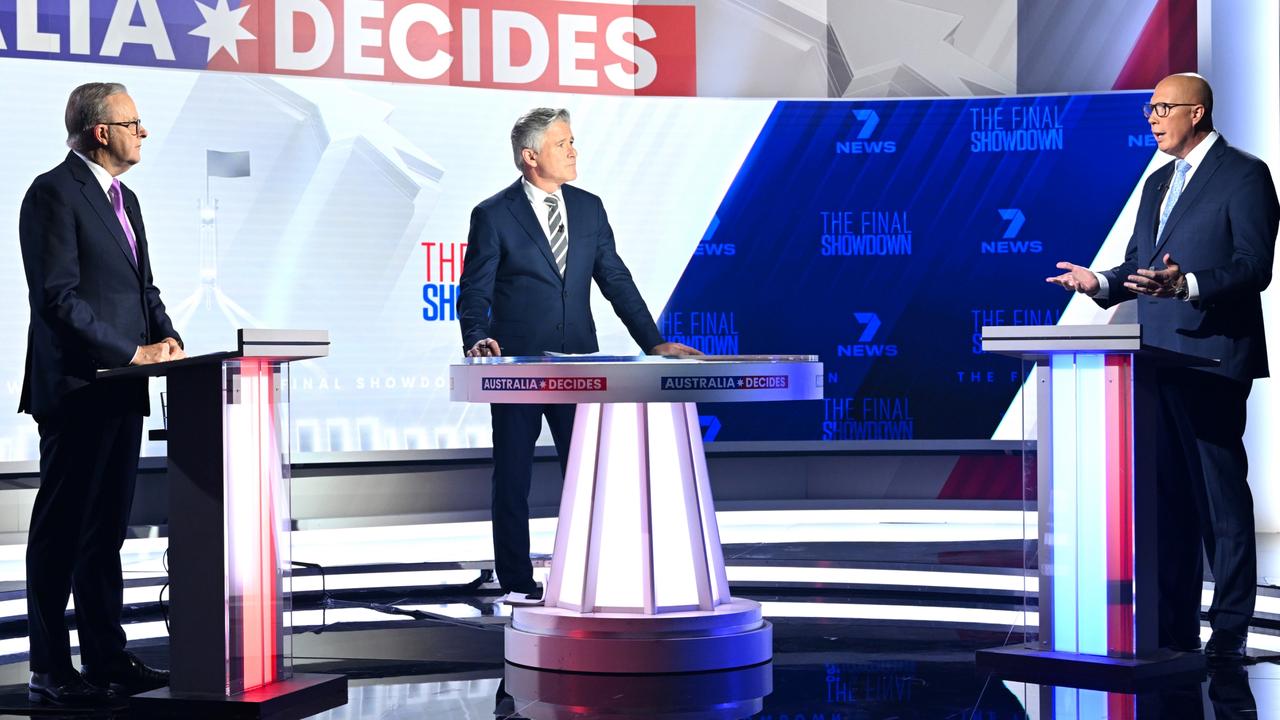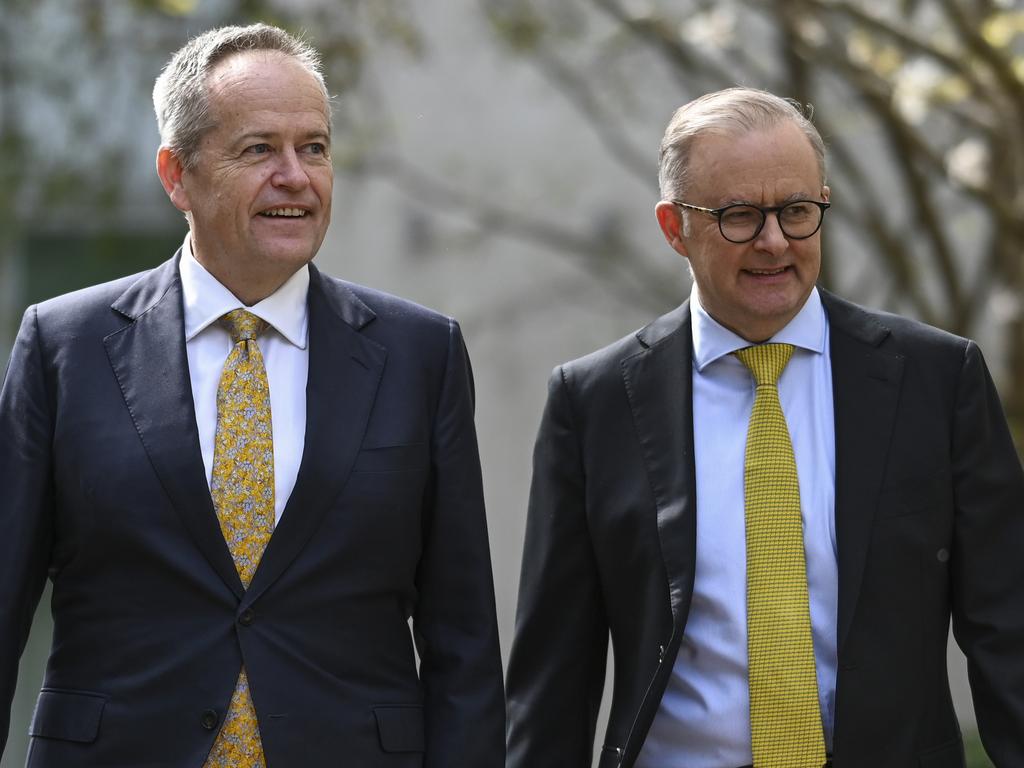Coronavirus: Daniel Andrews’ adviser Chris Eccles latest scalp in quarantine fiasco
Chris Eccles reveals he called Victoria’s top police officer in a six-minute window during the planning of hotel quarantine.

Victoria’s most senior public servant, Chris Eccles, sensationally quit on Monday after it was revealed he had telephoned the state’s top police officer at the height of deliberations over the failed hotel quarantine system — contradicting his evidence to the hotel quarantine inquiry.
Victorian Premier Daniel Andrews admitted he was shocked by the sudden resignation of Mr Eccles over the emergence of a key two-minute phone conversation with former police commissioner Graham Ashton.
It is the second major resignation from the government in a fortnight over the quarantine ¬debacle that sparked Victoria’s massive second wave of infections, spooking Labor MPs but cabinet continues to back Mr Andrews.
As Victoria’s Department of Premier and Cabinet secretary, Mr Eccles has been Mr Andrews’ right-hand man since Labor won power in 2014.
His resignation came after his phone records revealed he called Mr Ashton in the pivotal six-minute window during the planning of hotel quarantine.
The dramatic departure came after Mr Andrews and his senior staff were asked to hand over their phone records to the inquiry. The Premier on Monday also faced questions over whether his chief-of-staff Lissie Ratcliff, who was not asked to appear before the inquiry, spoke to Mr Eccles outside the crucial national cabinet meeting that decided on hotel quarantine.
Amid the political controversy, Mr Andrews is juggling community fatigue over lockdown measures and stubborn virus levels, saying the current rate of infections may be “as good as it gets”.
Victoria recorded 15 new cases on Monday, making it difficult for the state to achieve the 14-day rolling average target of five, prompting Mr Andrews to say the current road map to reopening could be revised.
He said opening up with higher daily case numbers than originally planned would increase the risk, but said remaining in lockdown longer than necessary would also be harmful.
“It may be at a point where we have to call it, where we have to say that this is as good as it will get — that means there is some greater risk, that means that the task of keeping this thing suppressed will be harder,” Mr Andrews said.

Mr Eccles announced his resignation on Monday after revealing that a detailed examination of his phone records was at odds with his evidence to the Coate hotel inquiry.
According to Mr Eccles’ call records, he called Mr Ashton at 1.17pm on March 27 — despite telling the inquiry he wasn’t sure if he had spoken to the then Victoria Police chief commissioner.
Minutes later, Mr Ashton sent a text message to his Australian Federal Police counterpart Reece Kershaw, to say that private security would be used in a “deal set up” by the Department of Premier and Cabinet.
Mr Eccles maintains he did not make the decision to employ private security guards — a policy failing believed to have been a major factor in sparking the state’s second wave. The security guard blunder is blamed for triggering 99 per cent of Victoria’s second wave of ¬coronavirus cases.
Nor, Mr Eccles said, did he tell Mr Ashton about the guards in the 1.17pm phone call.
Mr Andrews said: “I was shocked when I was informed last night that this call had been made, and that a detailed examination of his phone records had shown that. He had indicated to the inquiry that he had not received a call. It’s clear that he had and I believe he’s made the right choice.’’
Mr Eccles said his phone records indicated he called Mr Ashton. “Following a request by the board of inquiry on Saturday 10 October 2020, I requested detailed telephone records from my telecommunications carrier,” he said in a statement.
“These records show I called Mr Ashton at 1.17pm and that I spoke with him for just over two minutes.
“At no time prior to 10 October 2020 had the board requested access to these telephone records, and they had not previously been in my possession.”
Mr Eccles emphatically denied he or anyone else from the Department of Premier and Cabinet made the decision to use private security at the hotel quarantine program.
“There has been much commentary and speculation about whether I or anyone else at DPC spoke to Mr Ashton during that narrow time frame on 27 March,” he said. “It is now evident I did.”
Mr Eccles said he resigned because he did not want to be a distraction. Between 1.16pm and 1.22pm on March 27 Mr Ashton had said someone called him to tell him a decision had been made to use private security to guard the hotels, according to the submission of Victoria Police to the hotel quarantine inquiry.
In text messages sent by Mr Ashton to Mr Eccles at 1.16pm on March 27, the former chief commissioner asked what role police would play in the hotel quarantine program. “The suggestion is that Victorian arrivals are conveyed to a hotel … somewhere where they are guarded by police for 14 days. Are you aware of anything in this regards?” Mr Ashton said.
When Mr Eccles gave testimony to the hotel quarantine inquiry on September 21, he said he did not respond to the text but conceded it was more likely that he asked someone in his office to reply to Mr Ashton.
It also emerged that Unified Security, one of the companies involved in the hotel quarantine program, emailed staff at 12.36pm on March 27 regarding obtaining hotel quarantine qualifications during the national cabinet meeting where the program was announced. However a Unified Security spokesman said no one from Mr Andrews office or DPC contacted the company ahead of hotel the program being announced.
A Labor MP, speaking ahead of a caucus meeting on Tuesday said that MPs were closely watching what was unfolding and would not tolerate another scandal.







To join the conversation, please log in. Don't have an account? Register
Join the conversation, you are commenting as Logout